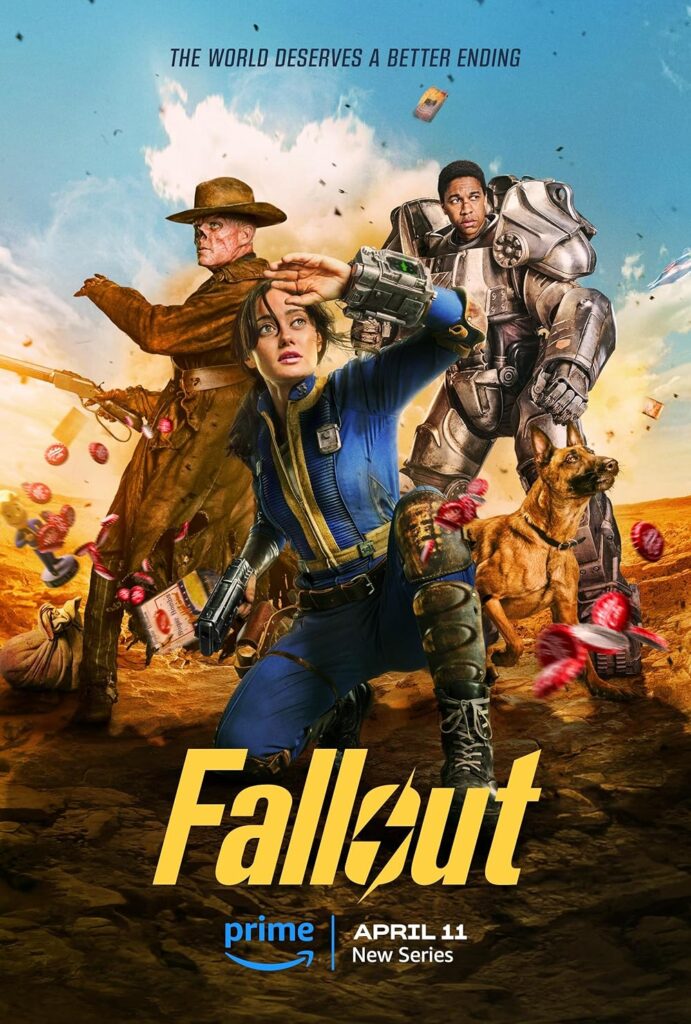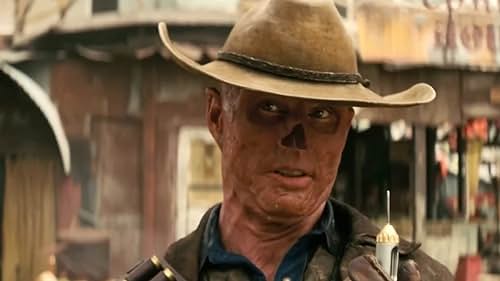Fallout Christian Review

Spanning across the vast wastelands of “Fallout,” Prime Video’s newest series whisks audiences away to a world scarred by nuclear devastation—a world wherein remnants of civilization cling to life underground in bunkers, safe from a radioactive surface overrun with mutants and marauders.
A Grim World for Moral Reflection
“Fallout” is not your usual way of looking at a post-apocalyptic drama; it is a story which delves deep into moral dilemmas and the human spirit. Lucy, Maximus, and the Ghoul are only a few characters to provide vivid depictions of the way in which the series handles sin and redemption, reminiscent of common Christian themes regarding spiritual journeys and moral conflict.
Lucy, who was brought up in the safety of Vault 33, embodies innocence plunged into chaos. From a somewhat sheltered life, she rises to approach the harsh realities of the wasteland, resembling in some ways a pilgrimage from naivety to understanding. It is a narrative voice that echoes Christian ideas of being out in a fallen world and nosing around with its challenges.
Maximus of the Brotherhood of Steel fights his way through a militaristic cult with divided loyalties and ambitions. The inward battle of duty verses personal integrity is how he manifested the Christian struggle of how to live faithfully amidst the demands that rubbed against each other.
Then there is the Ghoul, a mutation of a survivor who strives to come to terms with his grotesque appearance and nightmarish past. His case parallels the themes of identity and transformation, reverberating in Christianity’s emphasis laid on inward renewal and overcoming adversity.
Visual Splendor and Symbolism
Visually, “Fallout” is a spectacle. It is not possible for a desolate wasteland with remains of the bygone era—in particular, the 1950s aesthetic frozen in time—to create anything less than a canvas full of symbolism. Something that harkens one back to nostalgia, set against the backdrop of decay, will help complete the moral odyssey that the characters are supposed to go through.
From Nuka-Cola to entire vaults, really iconic items in this series inventory make game flow very realistic. These elements provide a sense of familiarity and nostalgia to the lovers of the video game series and offer windows into a very lavishly established universe to newbies.

Spiritual Reflections in the Wasteland
Ultimately, “Fallout” allows audiences to consider deeper spiritual themes. It is a story of consequences, the actions of humankind, and the quest for meaning in a broken world. While the wasteland is representative of chaos and despair, the acts of mercy and sacrifice that give flashes of hope hold at the center for this theology.
It is the journey of characters in “Fallout” that can be cast into a framework similar to spiritual quests for truth and purpose. Countering evil while upholding righteousness in the face of moral ambiguity and adversity was reiterated through the characters’ experiences, particularly in Lucy’s innocence, Maximus’s struggle for identity, and the Ghoul’s quest for redemption—mirrored aspects of viewers’ personal spiritual journeys.
Conclusion: A Thought-Provoking Adaptation
“Fallout” comes out as much more than a video game adaptation; it is a deep exploration into the depths of human resilience and moral complexity. It delivers an action-filled drama with nuanced characterization, setting it at par with the rest in the post-apocalyptic genres.
While the “Fallout” series may be a good source of material for mature audiences who would grapple with issues such as sin, redemption, and the human condition and find food for self-reflection and analysis of situations, some scenes in it are indeed rather intense and very morally gray. Still, in the end, it gives a great narrative that really engulfs one into the eternal struggle between good and evil.
Recommended Viewing
The “Fallout” series fans will have their cup filled, as will mature viewers into moral dilemmas and intense characters. Probably it will also appeal to those who reach for narratives that take spiritual themes anywhere a little more unexpected.
Verse for Reflection
“Do not be overcome by evil, but overcome evil with good.”—Romans 12:21, NIV
In “Fallout,” the characters face the darknesses of their world with various degrees of hope and despair—a poignant reminder of the Christian vocation to stand fast in faith and righteousness amidst adversity.
Conclusion
“Fallout” shows how the creative arts give the world a platform for thoughts and an arena of emotions. Think of it as a passage through a ruined world that forces viewers to really consider the other questions in human choice and redemption. Whether you are a fan of the video games or you’ve never heard of the franchise, “Fallout” sets out for viewers a mesmerizing experience of a story, both captivating and introspective: an examination of humanity’s ability to choose between darkness and light in a world irrevocably changed by nuclear catastrophe.





